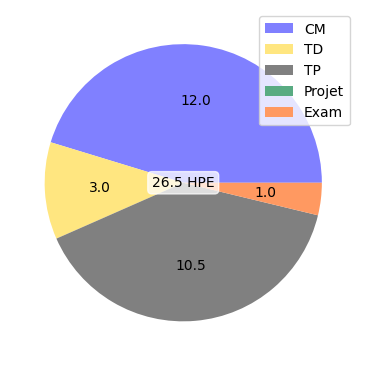Réseau
Computer Networking
Description: This course introduces students to the fundamentals of computer networks, with a particular focus on the Internet. It covers key concepts such as protocols and protocol stacks, as well as the various layers involved in network operation. Students will develop an awareness that network security is addressed at every layer. Several protocols (IP, HTTP, POP, etc.) will be explored in greater depth during lab sessions, and students will gain hands-on experience with the Socket API. Finally, seminars will encourage critical thinking on the governance and geopolitical dimensions of modern networks.
Learning outcomes: By the end of this course, students will understand the importance of layered architectures, be familiar with the purpose of each layer in the Internet model, and recognize some of the common solutions implemented at each level.
Evaluation methods: 1h written test, can be retaken.
Evaluated skills:
- System
- Development
Course supervisor: Virginie Galtier
Geode ID: SPM-INF-008
CM:
- concepts fondamentaux 1 (1.5 h)
- concepts fondamentaux 2 (1.5 h)
- couche liaison de données (1.5 h)
- couche réseau (1.5 h)
- couche transport (1.5 h)
- couche application (1.5 h)
- séminaire : aspects géopolitiques du DNS (1.5 h)
- séminaire : administration d’un réseau (1.5 h)
TD:
- protocole du bit alterné (1.5 h)
- adressage (1.5 h)
TP:
- QoS, analyse de trame (1.5 h)
- couche liaison de données (1.5 h)
- routage sur simulateur (1.5 h)
- couche transport (1.5 h)
- client/serveur (1.5 h)
- mail (1.5 h)
- HTTP (1.5 h)
